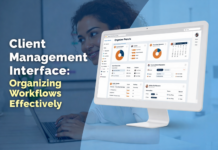Choosing ERP technology for automating and streamlining back-end processes can prove challenging to small and mid-size companies. After all, most popular solutions were designed and priced for large-scale enterprises, without factoring in financial and technological constraints and needs of SMBs. Luckily, today there are ERP solutions that are tailored to the needs of SMBs, easier to implement, and more affordable. Ranked the best ERP system of 2025 by the Forbes Advisor Small Business team, Dynamics 365 Business Central is one of these solutions. Rich yet not excessive functionality, cloud-based deployment, and seamless integration with the Microsoft ecosystem has made it a popular choice among modern small and mid-sized companies.
In this article, experts from Itransition, a Microsoft Solutions Partner since 2008, highlight three reasons to consider Business Central implementation for SMBs looking for an ERP solution.
Table of contents
Rich functionality
The first reason for you to consider Business Central is its functionality, which provides all the features required to handle back-office processes of SMBs. Capabilities of this all-in-one ERP solution include but are not limited to the following:
Sales management
- Contact management
Dynamics 365 Business Central allows for storing sales contacts and organizing all customer-related information in one place, simplifying customer interactions personalization for sales agents.
- Customer segmentation
Business Central enables users to segment contacts based on preset criteria, such as customers’ age, income, or location, and launch automated, targeted campaigns for each of these segments (promotional email campaigns, post-purchase campaigns etc.).
- Sales order generation and processing
The system streamlines the order-to-cash process by generating sales orders quickly based on copies of past orders, initiating picking and shipping of items directly from the sales orders, as well as creating invoices for the shipped items automatically.
- Sales analytics
The in-built analytical tools allow users to gain insights into a company’s sales performance based on historical sales data, including top-performing individuals and teams, best-selling items, high-value customers, etc.
Financial management
- Payment management
Business Central provides tools for automated payment gateway software generation, processing, distribution, and reconciliation, which helps SMBs streamline receivables and payables management and therefore improve cash flow.
- Budget management
The system enables users to generate new budgets either manually or automatically based on existing general ledger records, easily import them into Excel for further customization, and monitor budget performance in real time.
- Tax management
Business Central can automate calculation of sales, GST, and VAT taxes based on entries from the general ledger and electronically submit them to tax authorities via service connections to tax authority websites, thus helping SMBs reduce the risk of human error and non-compliance.
- Financial analytics
Business Central also provides a consolidated view into the company’s financials (including income, expenses, and cash flow) together with the ability to create different types of financial presentations or reports (such as balance sheets or trial balance reports), which helps timely identify financial risks and make more informed financial planning decisions.
Inventory management
- Inventory tracking
Business Central allows for tracking inventory items the supply chain and across multiple locations or warehouses, helping SMBs get full visibility into the flow of materials and goods across their organizations. Integrating solutions like The QR Code Generator (TQRCG) can streamline this process by enabling quick scanning and accurate tracking of items, reducing manual errors and saving valuable time.
- Demand forecasting
The planning system built into Business Central can automatically analyze existing sales and production orders to predict future customer demand and compare forecasted amounts with the current stock levels to help SBMs identify potential shortages and optimize inventory timely, thus ensuring supply chain resilience.
- Stock reordering
By setting up reorder points and configuring automatic reordering rules, users can automate order replenishment in Business Central to ensure their companies always have an optimal stock level (in case inventory falls below a particular level, the system can automatically generate purchase orders and send them to suppliers).
- Inventory analytics
Users also can leverage Business Central’s reporting and analytics tools to monitor and analyze different types of metrics (inventory turnover rate, days sales of inventory, supplier quality, etc.) to uncover inefficiencies and bottlenecks in inventory management processes and help companies eliminate them.
Service management
- Scheduling service orders
Business Central allows field service managers to create work orders, select field service representatives by skills and availability, and schedule generated orders to the appropriate service reps, which helps streamline the provision of better after-sales services to customers, increasing their loyalty and satisfaction.
- Warranty management
With Business Central, SBMs can track and manage warranties more efficiently by setting custom start and end dates for warranties, creating work orders for items under warranty, tracking warranty status, costs, and durations, renewing warranty contracts automatically, etc., providing customers with more positive warranty experiences.
- Field service analytics
Managers can also view the whole history of service interactions for each contract to gain a clear understanding of how reps are performing and how much time they spend on order execution, which can help SMBs identify and eliminate bottlenecks in reps’ workflows.
Flexible and affordable pricing
The affordability of Dynamics 365 Business Central is another solid reason SMBs should consider this ERP system. Business Central operates based on a subscription-based pricing model, which is inherently more cost-effective compared to pay-per-use pricing, with the total cost of the ERP solution broken down into smaller, manageable payments.
Business Central’s tiered pricing model also makes the solution more affordable, as you can choose the software edition that better suits your budget.
- Essentials
The Essentials edition includes core Business Central functionality, such as sales, supply chain, and financial management, and costs $70.00 per user a month.
- Premium
The extended Premium edition features additional capabilities beyond the basic offering, namely field service and manufacturing management and costs $100.00 per user a month.
- Team Member
The Team Member edition also grants users access to basic Business Central’s functionality, but they can only view data and perform a limited set of actions within the system. This is the most affordable license that costs $8 per user per month.
Business Central also offers a 30-day free trial, which grants access to many of the system’s core capabilities, including sales management, financial management, and inventory management highlighted above. You can sign up for it to explore Business Central in practice, better understand how it works, and ensure that the solution can address your unique pain points, which will later help you make a more confident investment decision.
Streamlined implementation
Speed and ease of implementation is another business advantage of Business Central that is highly relevant to SMBs. In this regard, Business Central can outperform many other ERP systems, and here is how:
- A cloud-based solution
As Dynamics 365 Business Central is hosted on Microsoft’s proprietary cloud platform, there is no need for on-premise hardware infrastructure. The implementation process often involves integrations and customizations where a full stack development company handles backend and frontend development for seamless deployment, accelerating timelines and reducing upfront costs.
- Seamless integration with Microsoft tools
The complexity and duration of any ERP implementation project largely depend on the number of required software integrations. If you use other tools from the Microsoft ecosystem, you can implement Business Central more quickly compared to other ERP systems, as it has readily available integrations with Teams, Outlook, and Excel.
- Large partner ecosystem
Microsoft has one of the largest partner ecosystems in the world comprising over 500,000 organizations worldwide. This means that SMBs can easily find an experienced technology partner to assist with the implementation and make it smoother.
Final thoughts
If you aim to streamline your operations and plan ERP implementation, you should consider adopting Dynamics 365 Business Central, as it is well-suited for SMBs in many aspects. An experienced Microsoft partner can analyze your unique business requirements to help assess the feasibility of Business Central for your organization. If it proves to be the suitable choice, a partner can also help you implement Business Central smoothly by assisting with solution conceptualization, data migration, custom functionality development, and any other tasks.











